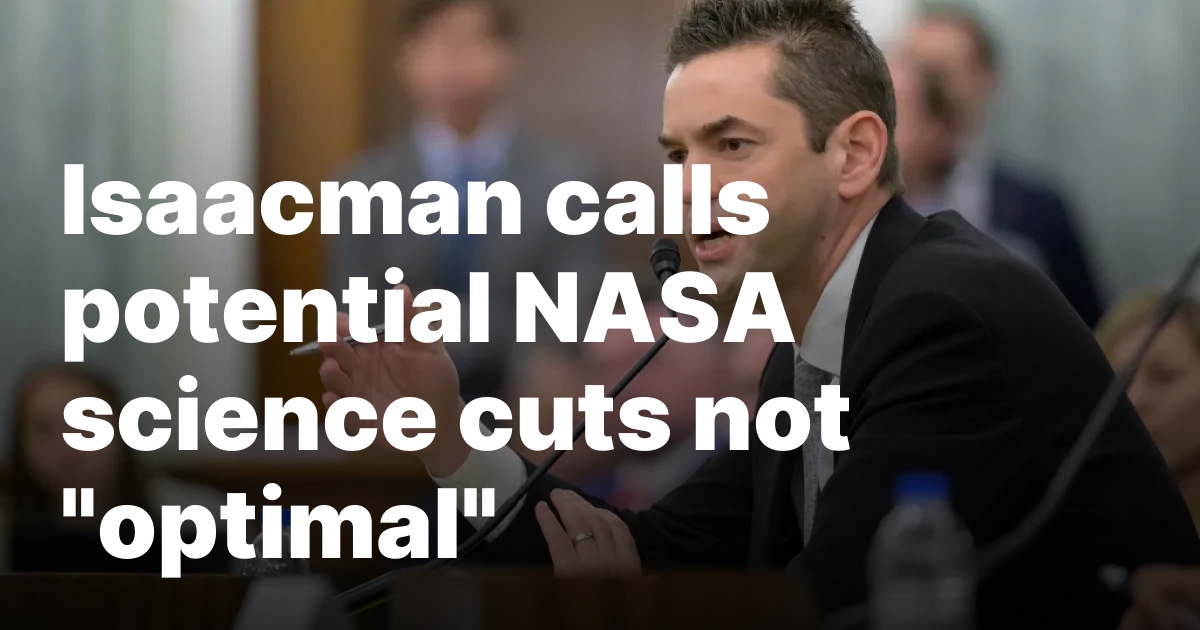Behind the Walls of Academia: How Harvard Pushes Back Against Trump's Policies
Science
2025-04-16 00:00:43Content

In a controversial stance that prioritizes ideological commitments over financial consequences, educational institutions are risking billions in federal funding by maintaining policies that critics argue enable antisemitic sentiments on campus. The potential loss of $9 billion in crucial federal support highlights the deep-seated tensions between academic ideology and practical financial considerations.
Universities are facing mounting pressure to address the growing concerns about campus climate, particularly regarding antisemitism. Despite the significant financial stakes, many institutions seem unwilling to modify approaches that have been characterized as divisive and potentially discriminatory. This steadfast position reveals a complex struggle between maintaining perceived progressive values and addressing legitimate concerns about campus safety and inclusivity.
The standoff underscores a critical moment in higher education, where ideological principles appear to be trumping economic pragmatism. By potentially forfeiting substantial federal funding, these institutions are sending a clear message about their commitment to current educational frameworks, even in the face of substantial financial repercussions.
As the debate continues, students, parents, and policymakers are left to grapple with the broader implications of these decisions, questioning the balance between academic freedom, institutional values, and the practical realities of educational funding.
Academic Integrity Under Siege: Harvard's Controversial Stance on Federal Funding and Campus Ideology
In the complex landscape of higher education, prestigious institutions like Harvard University find themselves at a critical crossroads, where academic principles, political ideologies, and financial considerations intersect in unprecedented ways. The ongoing debate surrounding campus policies, free speech, and institutional accountability has reached a pivotal moment that demands careful examination and nuanced understanding.Navigating the Treacherous Waters of Academic Freedom and Institutional Policy
The Financial Dilemma: Principles vs. Funding
Harvard University stands at a remarkable juncture where its commitment to certain ideological positions appears to outweigh substantial financial considerations. The potential loss of $9 billion in federal funding represents a profound statement about the institution's perceived priorities. This unprecedented stance raises critical questions about the balance between academic autonomy, political ideology, and financial sustainability. The university's leadership seems prepared to risk significant financial resources rather than compromise on policies that have been characterized as potentially enabling divisive campus environments. This decision reflects a deeper philosophical commitment that transcends immediate economic calculations, suggesting a complex interplay between institutional values and external pressures.Campus Climate and Ideological Tensions
The underlying tensions reveal a multifaceted challenge within contemporary academic institutions. Questions of free speech, institutional neutrality, and the boundaries of academic discourse have become increasingly contentious. Harvard's position suggests a willingness to defend what it perceives as fundamental principles, even at considerable economic cost. The controversy highlights the delicate balance between maintaining an open academic environment and addressing concerns about potential ideological biases. Critics argue that certain campus policies may inadvertently create spaces that marginalize specific perspectives or enable potentially harmful narratives.Institutional Accountability and Systemic Challenges
The situation extends beyond a simple binary of right versus wrong, instead revealing the intricate complexities of modern academic governance. Harvard's stance represents a broader conversation about the role of elite educational institutions in shaping social discourse, managing diverse perspectives, and maintaining academic integrity. The potential forfeiture of federal funding underscores the high-stakes nature of these institutional decisions. It demonstrates a remarkable commitment to perceived principles, suggesting that financial considerations are secondary to what the university views as fundamental ethical positions.Broader Implications for Higher Education
Harvard's decision serves as a potential watershed moment for higher education nationwide. It challenges traditional assumptions about institutional behavior, suggesting that some universities are willing to make significant financial sacrifices to maintain their ideological stance. This approach raises profound questions about accountability, transparency, and the evolving role of academic institutions in contemporary society. The ripple effects of such a decision could potentially influence policy discussions, funding models, and institutional practices across the educational landscape.Navigating Complex Institutional Dynamics
The ongoing situation represents more than a simple policy dispute. It embodies the complex negotiations between institutional autonomy, financial sustainability, and ideological commitments that characterize modern academic environments. Harvard's willingness to potentially forfeit billions in federal funding signals a profound commitment to its perceived principles. Whether this stance will be viewed as principled leadership or problematic intransigence remains to be seen, but it undoubtedly represents a significant moment in contemporary academic discourse.RELATED NEWS
Science

NASA Budget Squeeze: Billionaire Astronaut Warns of Potential Science Setbacks
2025-04-25 11:09:10
Science

Lunar Horizons: NASA's VR Frontier in Preparing for Extraterrestrial Science
2025-03-05 19:38:03






